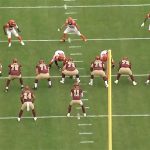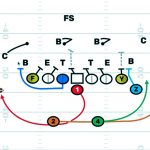In the fast-paced world of professional hockey, the salaries of coaches vary widely, reflecting the diverse landscape of the sport.
From the grassroots level to the pinnacle of the National Hockey League (NHL), coaching compensation is influenced by numerous factors.
This blog post delves into the intricacies of hockey coaches’ salaries, examining the disparities between ordinary coaches in youth and amateur leagues and their high-profile counterparts in the NHL.
We’ll explore the key determinants shaping coaching contracts, the impact of league levels, and the nuances of performance-based incentives.
Understanding these dynamics provides insight into the economics of hockey coaching, shedding light on how financial considerations align with the pursuit of excellence on the ice.
Roles of A Hockey Coach
A hockey coach plays a crucial role in the development and success of a hockey team. The responsibilities of a hockey coach go beyond just teaching players how to play the game. Here are some key roles of a hockey coach:
Tactical Strategist
One of the primary responsibilities of a hockey coach is to develop and implement effective game strategies.
This involves analyzing the strengths and weaknesses of both the team and the opponents. The coach must create tactical plans for different game situations, including offensive plays, defensive setups, power plays, and penalty kills.
Regularly updating and adapting these strategies based on team dynamics and opponent analysis is crucial for success.
Skill Development
Coaches are instrumental in enhancing the players’ individual skills. This includes improving skating techniques, stickhandling, shooting accuracy, and defensive maneuvers.
The coach must design and conduct skill-focused drills during practice sessions to hone these abilities.
Identifying areas for improvement in each player and tailoring training programs to address those needs is essential for the overall growth of the team.
Team Motivator and Leader
Creating a positive and motivating team culture is a vital aspect of a coach’s role. Effective communication and leadership skills are necessary to inspire players and foster a sense of unity.
Coaches must motivate players during both highs and lows, ensuring that the team remains focused, determined, and cohesive. Building team morale and camaraderie contributes significantly to success on the ice.
Game Management

During actual games, coaches are responsible for making critical decisions in real-time. This includes line changes, strategic adjustments, and adapting to the opponent’s tactics.
The coach must have a deep understanding of the flow of the game, player performances, and the ability to make quick decisions under pressure.
Game management also involves assessing player fatigue and ensuring optimal player rotations.
Player Evaluation and Development
Continuous assessment of individual player performance is crucial for improvement. Coaches must provide constructive feedback to players, acknowledging strengths and addressing areas for growth.
This involves conducting regular player evaluations, setting goals for improvement, and working closely with players to help them reach their full potential.
Monitoring the progress of each player and adjusting development plans accordingly is an ongoing process.
Team Culture and Discipline
Establishing a positive team culture and enforcing discipline are essential for a cohesive and successful team. Coaches set expectations for behavior on and off the ice, emphasizing sportsmanship, teamwork, and commitment.
Instilling a strong work ethic and fostering a culture of accountability helps create a winning mentality within the team. Addressing conflicts and maintaining a healthy team dynamic is crucial for long-term success.
A hockey coach plays a pivotal role in shaping the strategic and developmental aspects of the team, while also serving as a motivator, leader, and mentor for individual players.
The ability to balance these responsibilities contributes to a well-rounded and successful coaching approach in the world of hockey.
What Is the Range of Hockey Coaches Salaries?
Hockey coaches’ salaries vary widely depending on the league, level of competition, and experience.
In the National Hockey League (NHL), coaches earn salaries within the range of approximately $1 million to $5 million, with the average falling between $2.5 million and $3.0 million annually.
The salary scale is influenced by factors such as coaching tenure, success, and the market demand for their expertise.
Coaches in lower-tier leagues or developmental teams typically receive considerably lower salaries, often ranging from tens of thousands to a few hundred thousand dollars annually.
Additionally, international leagues and collegiate teams may offer diverse compensation packages.
Coaches with a proven track record of success and extensive experience tend to command higher salaries, while those at the entry level or in non-professional leagues earn more modest incomes.
Factors Influencing the Hockey Coach’s Salaries

Several factors influence the salaries of hockey coaches, ranging from the level of competition to individual performance and market demand. Here are key factors that contribute to the variation in hockey coach salaries:
League Level
The level of competition significantly impacts coaching salaries. Coaches in elite leagues like the National Hockey League (NHL) generally command higher salaries compared to coaches in lower-tier leagues or developmental teams.
Experience and Success
Coaches with a proven track record of success, including playoff appearances and championships, often receive higher salaries. Experience and a history of winning contribute to a coach’s market value and bargaining power.
Market Demand
The demand for a coach’s expertise in the market plays a crucial role.
Teams in need of experienced and successful coaches may offer higher salaries to attract top talent, especially if there is competition among teams for the same coaching candidate.
Team Budget
Each team operates within a budget, and coaching salaries are influenced by the financial resources available to the organization. Teams with higher budgets may allocate more funds to coaching salaries to secure top-tier coaching talent.
Contract Length
The length of a coach’s contract can impact their salary. Coaches with longer-term contracts may negotiate for higher salaries due to the perceived stability and commitment they bring to the organization.
Market Trends
Trends in coaching salaries across the league or industry can influence individual negotiations. If there is a trend of increasing coaching salaries, coaches may leverage this information to negotiate higher compensation.
Geographical Location
The cost of living and economic conditions in a particular region can affect coaching salaries. Coaches in cities with a higher cost of living may negotiate for higher compensation to offset living expenses.
Negotiation Skills
The ability of a coach to negotiate effectively can impact their salary. Coaches who are skilled negotiators may secure better contracts, including higher salaries and additional perks.
Team Ownership
The financial philosophy and commitment of team ownership also play a role. Owners who prioritize investing in coaching talent may allocate more resources to coaching salaries to build a competitive team.
Player Development Focus
In leagues with a strong emphasis on player development, coaches who excel in nurturing and developing young talent may be valued and compensated accordingly.
Hockey coach salaries are shaped by a combination of factors, including the level of competition, individual success, market demand, team budget, contract terms, and negotiation skills.
These factors collectively contribute to the diverse range of coaching salaries in the hockey world.
Types of Contracts and Incentives of Hockey Coaches

Hockey coaches’ contracts can vary in structure and terms, and the incentives included often depend on factors such as the coach’s experience, the level of competition, and the team’s goals.
Here are common types of coaching contracts and the incentives associated with them:
Standard Contracts
This is a fixed-term contract where the coach receives a predetermined salary over a specific period, often for one or more seasons. Standard contracts provide stability and security for both the coach and the team.
Performance-Based Contracts
Coaches may negotiate contracts with performance-based incentives tied to specific achievements.
These incentives could include reaching the playoffs, achieving a certain win-loss record, or advancing to specific rounds in the postseason.
Multi-Year Contracts
Some coaches negotiate multi-year contracts, providing long-term stability and commitment. Multi-year contracts can offer financial security and demonstrate the team’s confidence in the coach’s ability to lead over an extended period.
Bonuses for Achievements
Coaches may receive bonuses for achieving certain milestones, such as winning a championship, being named Coach of the Year, or reaching a predetermined number of victories. These bonuses serve as rewards for exceptional performance.
Player Development Bonuses
In leagues with a strong emphasis on player development, coaches may receive bonuses based on the progress and success of individual players.
This incentivizes coaches to contribute to the growth and improvement of the team’s talent pool.
Retention Bonuses
Teams may include bonuses to incentivize coaches to stay with the organization for an extended period. These bonuses are often paid if the coach completes certain milestones or remains with the team for the duration of the contract.
Playoff Performance Bonuses
Coaches may receive additional compensation based on the team’s success in the playoffs. Bonuses could be structured to reward advancement to different rounds, ultimately culminating in a championship bonus.
Salary Escalation Clauses
Contracts may include provisions for salary increases over the term of the agreement. Salary escalation clauses could be tied to performance metrics, seniority, or other factors.
Buyout Clauses
Both parties may agree on buyout clauses that specify the terms under which the contract can be terminated before its natural expiration. Buyout clauses may involve a negotiated payment or other compensation.
Non-Monetary Perks
In addition to financial incentives, coaches may negotiate non-monetary perks such as housing allowances, travel benefits, or access to team facilities. These perks contribute to overall job satisfaction.
Contracts and incentives for hockey coaches are diverse and depend on the specific circumstances and priorities of both the coach and the team.
Negotiations between parties play a crucial role in determining the terms and structure of coaching agreements.
Ordinary Coach Salsy Vs. NHL Coach Salary
The salary of an ordinary or non-professional coach, such as those coaching at lower levels of competition, in youth leagues, or at the amateur level, is significantly lower than that of an NHL (National Hockey League) coach.
The distinction in salaries is influenced by various factors, including the level of competition, revenue generated by the league, and the scale of the sports industry.
Ordinary Coach Salary
Coaches at the amateur or non-professional levels often receive modest compensation. Youth and community league coaches, for example, may be volunteers or receive nominal stipends.
In school or college settings, coaches may receive salaries as part of their broader roles within the educational institution.
NHL Coach Salary
NHL coaches, being at the pinnacle of professional hockey, command significantly higher salaries. NHL coach salaries ranged from approximately $1 million to $5 million annually, with the average falling between $2.5 million and $3.0 million.
The salaries of NHL coaches reflect the high stakes, level of competition, and financial resources of professional sports organizations.
The vast difference in salaries between ordinary coaches and those in the NHL is primarily due to the commercialization, revenue generation, and global popularity of the NHL.
The league attracts substantial sponsorships, broadcast rights deals, and fan engagement, enabling teams to allocate more resources to coaching staff and player salaries.
In contrast, non-professional and amateur leagues often operate with limited budgets and rely on a mix of volunteerism and smaller financial commitments.
FAQs
What is the average salary of an NHL hockey coach?
The average salary of an NHL hockey coach ranges from $2.5 million to $3.0 million annually.
However, individual salaries vary based on factors such as experience, team success, and market demand for coaching talent.
Do lower-tier hockey leagues offer competitive coaching salaries?
Coaching salaries in lower-tier hockey leagues are generally more modest, ranging from tens of thousands to a few hundred thousand dollars annually.
Salaries depend on the league’s financial resources, market demand, and the coach’s experience.
Are coaching contracts in hockey performance-based?
Yes, many hockey coaching contracts include performance-based incentives.
Coaches may receive bonuses for achievements like making the playoffs, achieving a specific win-loss record, or advancing through playoff rounds, providing additional motivation for success.
How do coaches negotiate their salaries in hockey?
Coaches negotiate salaries based on factors like their experience, coaching success, and the team’s financial capacity.
Negotiations may also include performance incentives, bonuses, and non-monetary perks. Long-term contracts and buyout clauses are additional elements negotiated during the process.
What factors contribute to the range in hockey coach salaries?
Several factors contribute to the range in hockey coach salaries, including the level of competition (NHL vs. lower-tier leagues), coaching experience, team success, market demand, and the economic conditions of the region.
Negotiation skills and contract terms also play crucial roles in determining salaries.
Wrapping Up
In the ever-evolving realm of hockey coaching, the spectrum of salaries illuminates the complex interplay between competition, experience, and market demand.
From dedicated mentors at the grassroots level to the strategic masterminds guiding NHL powerhouses, the financial landscape mirrors the diverse nature of the sport itself.
As we conclude this exploration of hockey coaches’ salaries, it becomes evident that compensation is not merely a reflection of wins and losses but a multifaceted outcome shaped by negotiations, achievements, and the broader economics of the hockey world.
Coaches, whether in local arenas or iconic stadiums, play a pivotal role, and their compensation models underscore the dynamic balance between investment, success, and the enduring passion that fuels the heart of hockey at every level.








James Felix